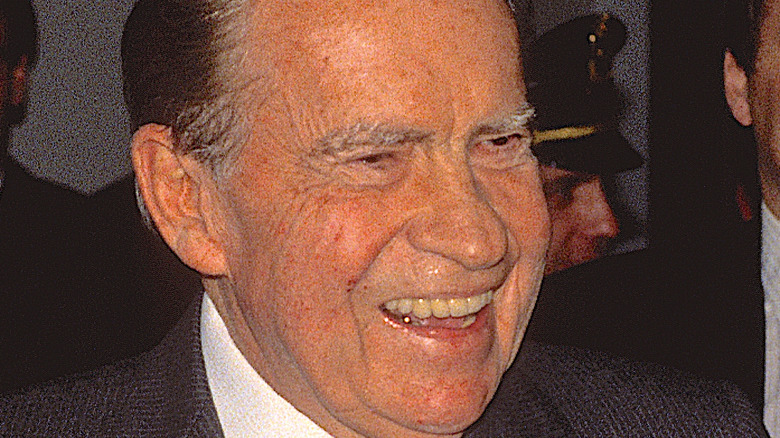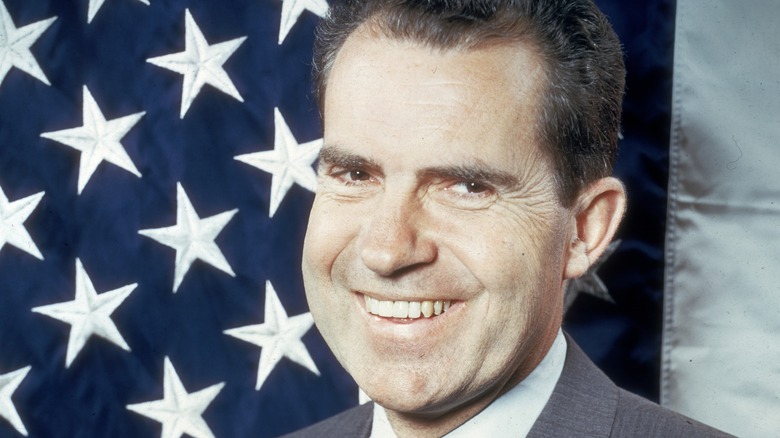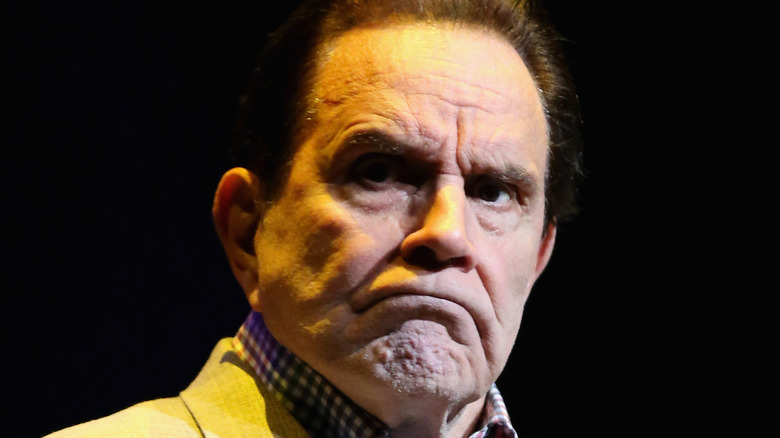How Richard Nixon Became An Unwelcome April Fools' Day Joke
Grover Cleveland is both the 22nd and 24th U.S. president, making him the only POTUS in history to serve two non-consecutive terms, as the National Park Service explains. Per The Conversation, several other U.S. presidents have unsuccessfully tried to pull off the feat throughout history. Did Richard Nixon try for a comeback in 1992, nearly two decades after resigning? Some NPR listeners at the time were duped into thinking that might be the case.
The Watergate scandal brought down the second term of the Nixon administration in 1974, according to History. Nixon was the only U.S. president to ever resign the post, and after doing so, trust in the American government waned, as the Miller Center explains. Nevertheless, Nixon claimed throughout Watergate that he was not a crook, but his reputation and legacy remained tarnished (via History).
In 1992, Richard Nixon was 79 years old, and he would die two years later. For context, though, President Joe Biden is around that same age, so Nixon trying for the White House at that point was not out of the question (per Biography).
Nixon appeared on NPR's Talk of the Nation ... or did he?
The popular NPR show "Talk of the Nation" was canceled in 2013 after a bit more than two decades on the air, according to The New York Times. It was on this call-in-style news show in 1991 — only one year after the program premiered — that some listeners believed that Richard Nixon was set to announce he was running again for the presidency. Per Constitution Center, no president is allowed to serve more than two complete terms, consecutive or otherwise. But whether a president could resign in his second term only to seek reelection later has never been tested.
Adding to the veracity of Nixon's statement was the most Nixon-like of campaign slogans. "I didn't do anything wrong, and I won't do it again," the voice on NPR radio said, to the dismay of many listeners. Problem is, those listeners forgot to first check the date before they reacted — it was April Fools' Day.
The voice on the radio was a comedian
The voice on the radio on April 1, 1992, was not disgraced former President Richard Nixon at all but acclaimed comedian Rich Little, who, up to that point, had made a name for himself doing a pretty spot-on Nixon impersonation, among many other celebrities. Several other comedians got in the Nixon-impersonation game shortly after he resigned, including "SNL" regular Dan Aykroyd (via Politico). Nevertheless, NPR news tried to make it seem like it was the real former president and that he was seeking to return to office.
Despite the fact it was April Fools' Day, listeners bought it and were outraged, calling into the show to voice their opinions (per The Washington Post). Shortly after the segment, though, NPR announced that it was, after all, an April Fools' prank. Sadly, no audio recordings of Rich Little's prank exist today. In the transfer of analog to digital recording, those sound clips did not make the cut. Today, Rich Little is alive and well at the time of this writing, and he is still working in Vegas, according to CBS News.


